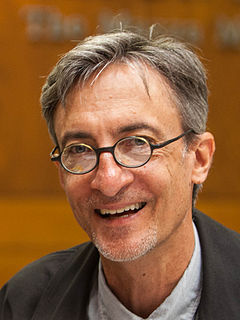A Quote by Geoff Dyer
Each of my book arrives at a form and a style that is appropriate to the subject.
Related Quotes
The branches of mathematics are as various as the sciences to which they belong, and each subject of physical enquiry has its appropriate mathematics. In every form of material manifestation, there is a corresponding form of human thought, so that the human mind is as wide in its range of thought as the physical universe in which it thinks.
You write differently in each book. It may appear to be similar to readers, but you're a different writer in each book because you haven't approached that subject before. And every subject brings out a different prose strain in you. Fundamentally, yes, you're contained as one writer. But you have various voices. Like a good actor.
I realize that having a style would be very beneficial for my practice from a marketing standpoint, but I can't do it. I believe my responsibilities as an architect are to design the most appropriate building for the place. Each place has a distinct culture and function, which for me requires an appropriate answer.
Each book requires a different look. Sometimes I get to take a personal direction that's appropriate for the story. I try to push things within a range. Some are rougher, some more expressionistic, some are slicker graphically and call for a prettier drawing style that I can do. Some have a more classical vibe, and some are in between.
I understand all the work to be of a nonabstract nature regardless of the style, form, or explicit subject matter because all the work... is concerned with evoking experiences that are in themselves - and their relationship to you, the viewer - the ultimate subject and content of the work. I want to equate the experience of the work with its meaning.
I first heard the term "meta-novel" at a writer's conference in Tulsa, Oklahoma. The idea is that even though each book in a series stands alone, when read collectively they form one big ongoing novel about the main character. Each book represents its own arc: in book one of the series we meet the character and establish a meta-goal that will carry him through further books, in book two that meta-goal is tested, in book three - you get the picture.





































